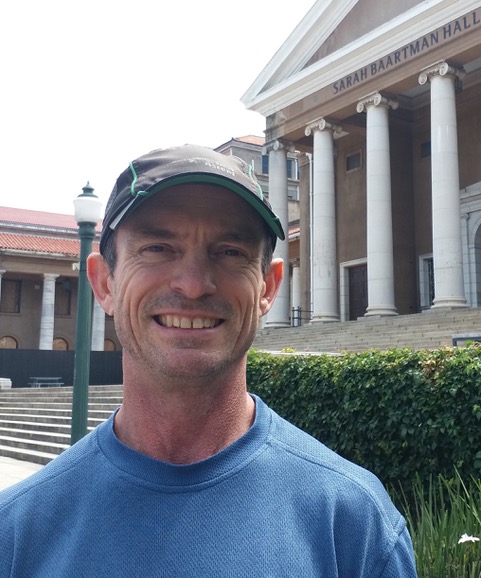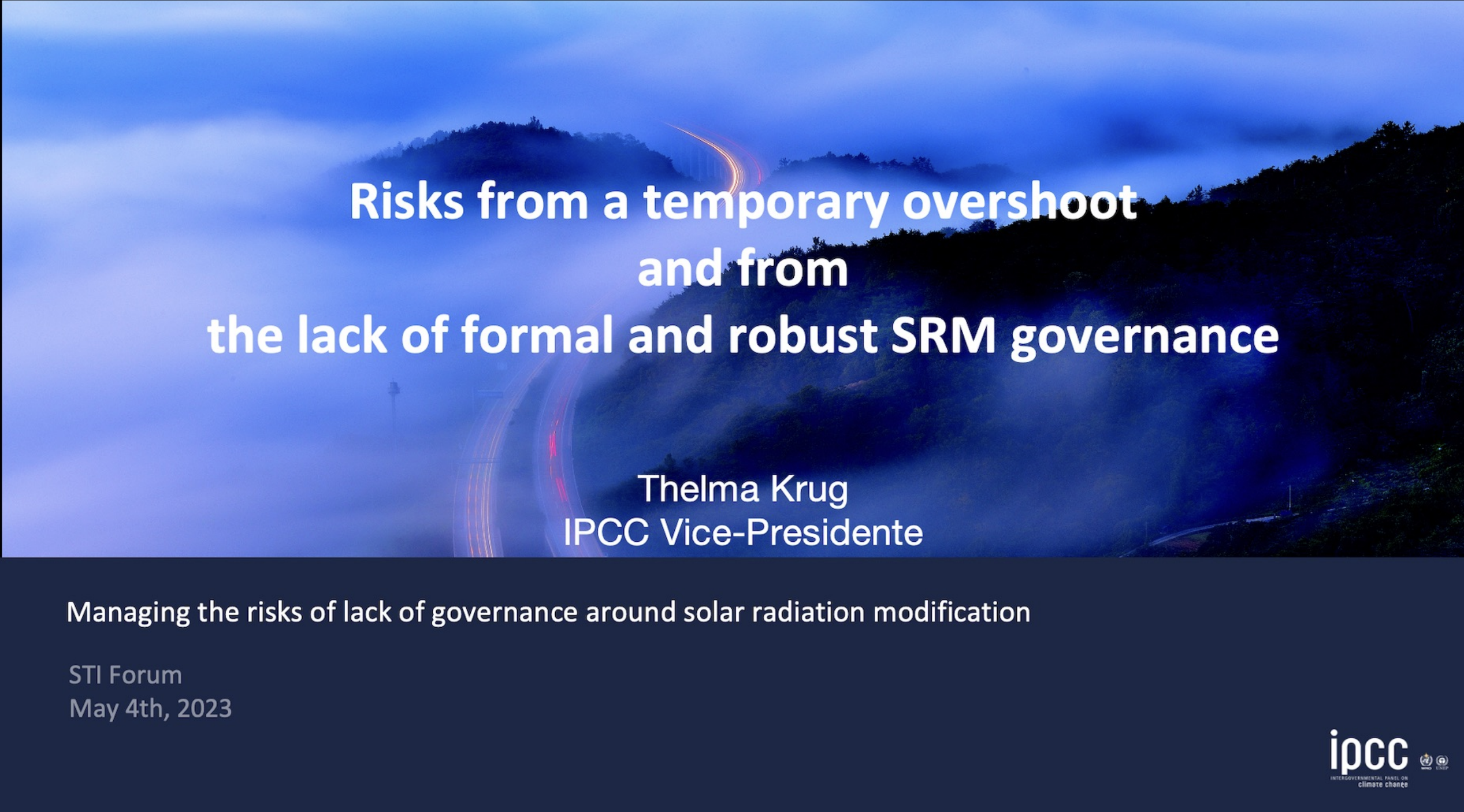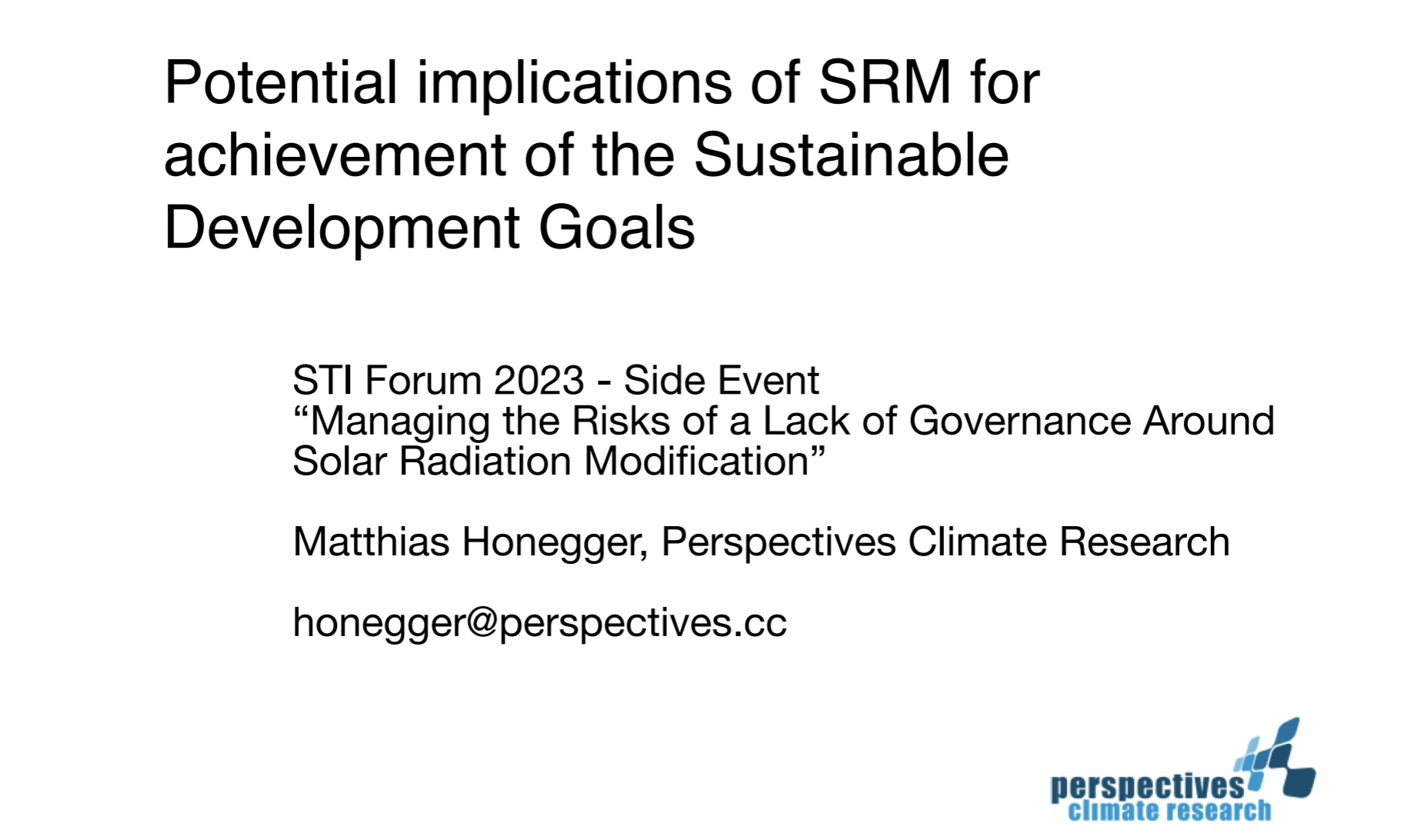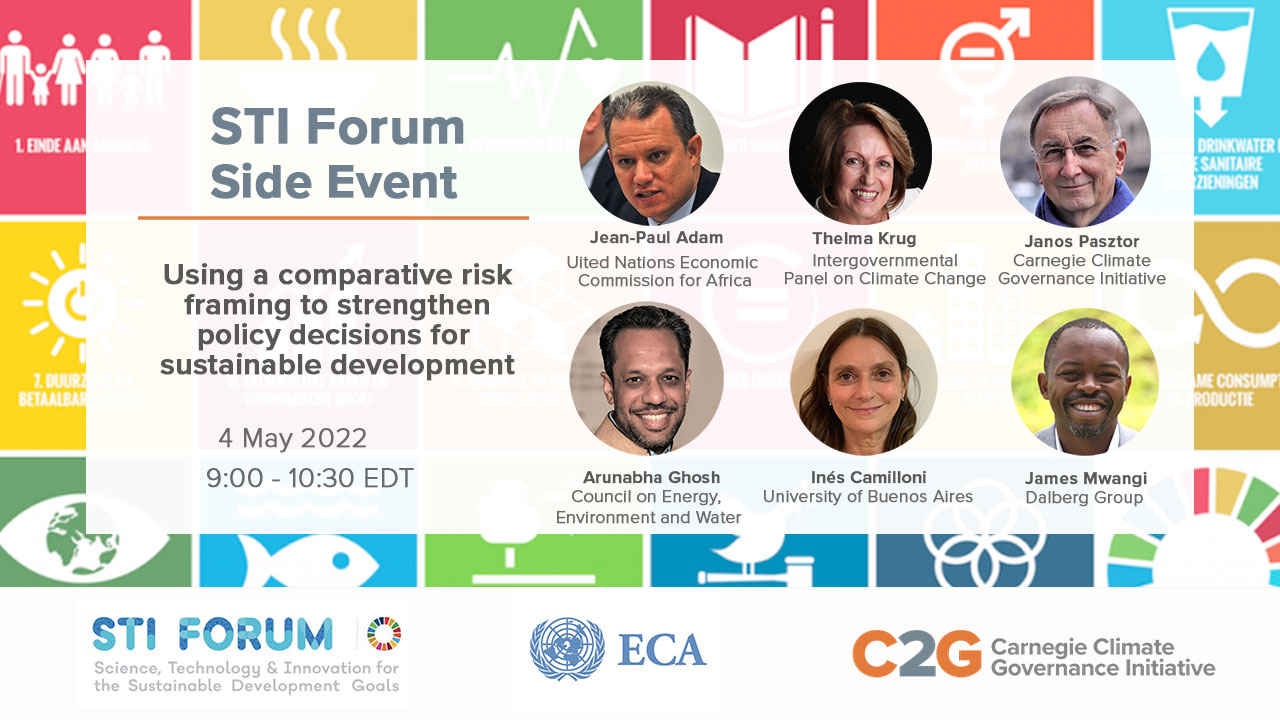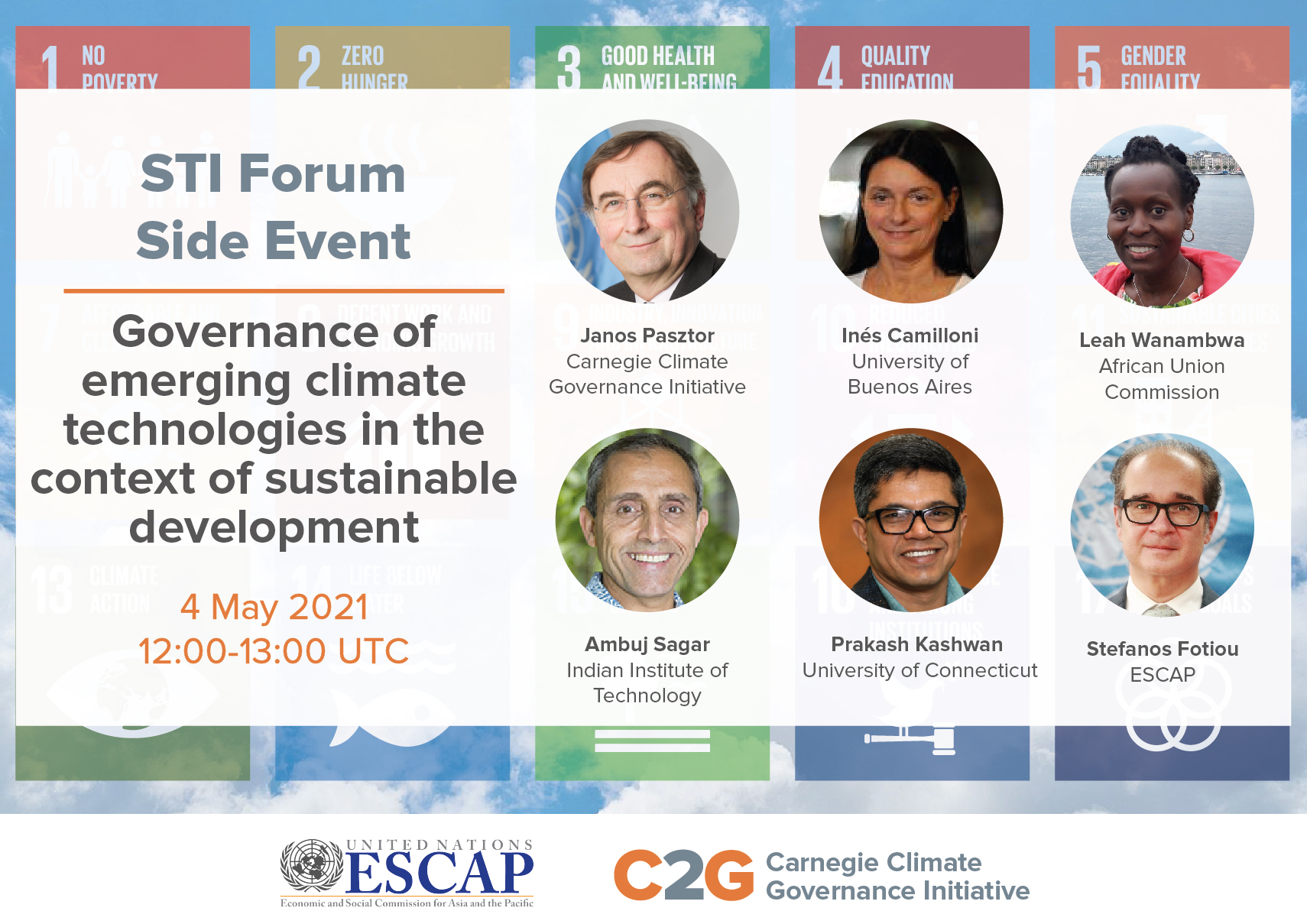Managing the Risks of a Lack of Governance Around Solar Radiation Modification
4 May 2023
8:30 – 9:45 AM (EDT)
Background
An important new insight in the Intergovernmental Panel on Climate Change’s (IPCC) most recent sixth assessment report (AR6), is that while pathways that could enable the world to hold the increase in global average temperature below 2°C above pre-industrial levels remain, the world is not on track to reach such pathways and even in those with the most rapid and deep emissions reduction, it is now more likely than not that global warming will temporarily exceed 1.5°C in the coming decades (overshoot).
According to the latest UNEP Emissions Gap report, policies currently in place internationally are projected to result in global warming of 2.8°C this century. Implementation of Nationally Determined Contributions (NDCs) reduce this to 2.6°C and 2.4°C could be reached if financial support is provided. However, the UNEP report cautions that the international community is falling far short of the Paris goals, with no credible pathway to 1.5°C in place.
As the risks of overshoot increase, in addition to deep and rapid climate mitigation and adaptation efforts, voices are calling for research on additional “emergency” options such as solar radiation modification (SRM) to keep global temperature rise in check by reflecting sunlight back into space to reduce the risks from an overshoot. In addition to its potential benefits, researching, developing, or deploying SRM poses multiple potential risks – both known and unknown. However, overshooting the Paris Agreement temperature goals also entails risks for both humanity and the ecosystems we depend on for survival posing serious threats to the achievement of the Sustainable Development Goals.
This side event will enable participants to gain a better understanding of solar radiation modification and the gaps around its governance, examining what we do and don’t know, the potential risks and benefits, and why the current international governance vacuum around SRM itself poses risks. The side event will also explore why and how strengthening the capacity and inclusion of youth and global south researchers may provide important insights to inform decision-making around managing the risks from global warming overshoot.
This side event is co-organized with the United Nations Economic Commission for Latin America and the Caribbean (ECLAC) and will include speakers from the IPCC, Perspectives Climate Research, the University of Cape Town, and a Youth representative from Bangladesh.
Agenda
| Opening Remarks | Janos Pasztor, Carnegie Climate Governance Initiative |
|
Presentations
|
Speakers:
|
|
|
|
|
|
|
| Q&A |
All |
| Closing remarks | Santiago Lorenzo, United Nations Economic Commission for Latin America and the Caribbean (ECLAC) |
Speakers
Thelma Krug, Vice-Chair, Intergovernmental Panel on Climate Change
Thelma Krug is a former researcher at the Earth Observation Coordination at the National Institute for Space Research in Brazil, under the Ministry of Science, Technology, Innovation and Communication (MCTIC).
She was elected Vice-Chair of the Intergovernmental Panel on Climate Change (IPCC) for the Sixth Cycle of Panel (October 2015 – October 2022), after having been co-chair of the IPCC Task Force on National Greenhouse Gas Inventories from 2002 until 2015. She holds a PhD on Spatial Statistics from the University of Sheffield, UK. She has been Deputy National Secretary at the Secretary on Policies and Programs of Science and Technology at MCTIC; National Secretary at the Secretary on Climate Change and Environmental Quality from the Ministry of the Environment (MMA) and Director of the Department on Policies to Combat Deforestation under the Secretary of Climate Change and Forests at MMA.
For more than 15 years she has represented Brazil in the negotiations at the United Nations Framework Convention on Climate Change (UNFCCC), with particular focus on issues related to land use, land-use change and forestry (LULUCF); research and systematic observations; and reporting guidelines. Her main areas of interest are climate change and the role of deforestation, forest degradation and land-use change; REDD+; and national greenhouse gas inventories.
Matthias Honegger, Senior Research Associate, Perspectives Climate Research
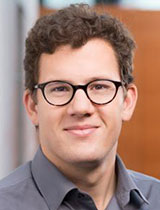 Matthias Honegger is a research associate with the Institute for Advanced Sustainability Studies, climate policy consultant with Perspectives Climate Research, and PhD candidate at Utrecht University. After his Masters in environmental sciences from the Swiss Federal Institute of Technology he has worked on sectoral mitigation policies, national mitigation targets, UNFCCC negotiations and the emerging governance of geoengineering. Matthias researches differences in climate policy negotiators’ and observers’ views of solar geoengineering and carbon removal, their roots in diverging values and worldviews and the resulting tensions between popular expectations, economic models and actual policy planning and implementation. He is author and co-author on several articles, commentaries and reports on issues of policy design for carbon dioxide removal and solar radiation management geoengineering and has led the first assessment of potential effects that deployment of such technologies could have on the pursuit of the entirety of the Sustainable Development Goals.
Matthias Honegger is a research associate with the Institute for Advanced Sustainability Studies, climate policy consultant with Perspectives Climate Research, and PhD candidate at Utrecht University. After his Masters in environmental sciences from the Swiss Federal Institute of Technology he has worked on sectoral mitigation policies, national mitigation targets, UNFCCC negotiations and the emerging governance of geoengineering. Matthias researches differences in climate policy negotiators’ and observers’ views of solar geoengineering and carbon removal, their roots in diverging values and worldviews and the resulting tensions between popular expectations, economic models and actual policy planning and implementation. He is author and co-author on several articles, commentaries and reports on issues of policy design for carbon dioxide removal and solar radiation management geoengineering and has led the first assessment of potential effects that deployment of such technologies could have on the pursuit of the entirety of the Sustainable Development Goals.Aasima Kamal Mowni, Youth Representative, Bangladesh
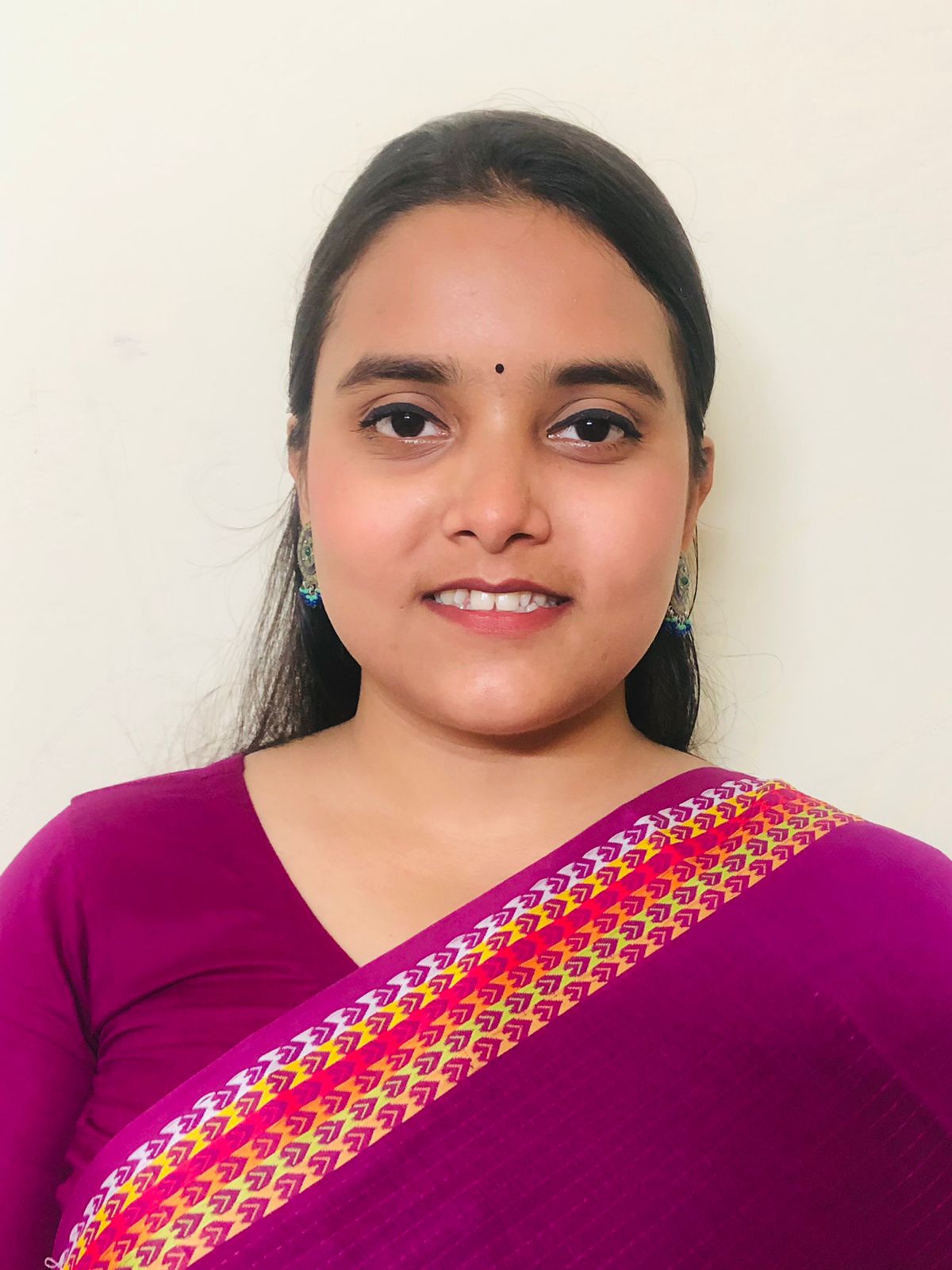
Chris Lennard, Environmental Scientist, University of Cape Town
Dr Chris Lennard is a climate scientist at the Climate System Analysis Group (CSAG) whose interests include the co-development of regional climate information, regional climate modelling, renewable energy, understanding extreme climate events, capacitating African climate scientists for climate research, mountain biking and trail running.
He is involved in a number of projects including as Co-PI on the Wind Atlas for South Africa (WASA) project; Co-PI on Health:RADAR project to co-develop an open-source web-based platform for climate sensitive infectious disease modelling; Co-PI on the DEGREES project to understand the potential impact of stratospheric geoengineering on southern Africa and a researcher on the FOCUS-Africa project to develop tailored climate services over Southern Africa.
He has authored or co-authored over 60 academic publications and 5 book chapters including as a Lead Author in the IPCC Special Report on Land and Climate, and the Africa chapters of the IPCC 5th and 6th Assessment Reports.
Within the World Climate Research Programme (WCRP) Chris serves as co-chair of the WCRP Academy, whose role is to develop capacity for climate research, particularly in developing countries; facilitates the CORDEX-Africa initiative that capacitates African climate scientists and builds our understanding of how climate change may impact the African context; serves on the WCRP Geoengineering Model Intercomparison Project steering committee and the CMIP6 Vulnerability, Impacts, Adaptation and Climate Services (VIACS) Advisory Board.
He is dad to two young boys, aged 7 and 9, who inspire his research.
Janos Pasztor, Executive Director, Carnegie Climate Governance Initiative

Earlier, he was Acting Executive Director for Conservation (2014), and Policy and Science Director (2012-2014), at WWF International. He directed the UNSG’s Climate Change Support Team (2008-2010) and later was Executive Secretary of the UNSG’s High-level Panel on Global Sustainability (2010-2012). In 2007 he directed the Geneva-based UN Environment Management Group (EMG). During 1993-2006 he worked and over time held many responsibilities at the Climate Change Secretariat (UNFCCC), initially in Geneva and later in Bonn.
His other assignments included: the Secretariat of the UN Conference on Environment and Development (Earth Summit ’92); Stockholm Environment Institute; United Nations Environment Programme (UNEP); Secretariat of the World Commission on Environment and Development (Brundtland Commission); the Beijer Institute; and the World Council of Churches. He has BSc and MSc degrees from the Massachusetts Institute of Technology (MIT).
Santiago Lorenzo, Head of the Climate Change Economics, United Nations Economic Commission for Latin America and the Caribbean (ECLAC)
Santiago Lorenzo Alonso is the Head of the Climate Change Economics Unit at the Economic Commission for Latin America and the Caribbean (ECLAC). He previously worked as a Coordinator of Sustainable Finance at the Climate Action Network and as Global Coordinator of Climate and Finance for WWF. Alonso has also worked as an independent consultant on environmental and policy issues, including economic instruments for environmental protection, environmental tax reform, and financing for sustainable development. He has a degree in economics from the Metropolitan Autonomous University and a master’s degree in environmental diagnosis and evaluation from the London School of Economics and Political Science. Alonso has participated in various international negotiations and has taught courses in environmental economics for the Mexican government, UNEP, the government of Rwanda, and the National Autonomous University of Mexico.
Prior to his current position, Alonso served as Deputy Director General for Multilateral Environmental Agreements at Mexico’s Ministry of Environment and Natural Resources. He is a member of the Fiscal Instruments Advisory Group of the Green Growth Knowledge Platform and is a PhD candidate in Environmental Sciences, specializing in ecological economics, at the Autonomous University of Barcelona. Alonso has several publications on sustainable development, particularly in economics and biodiversity, finance, and climate change.
Presentations
Thelma Krug, Intergovernmantal Pannel on Climate Change
Managing the risks of lack of governance around solar radiation modification
Chris Lennard, University of Cape Town
Building Capacity in the Global South for Solar Radiation Modification Research
Matthias Honegger, Perspectives Climate Research
Potential Implications of SRM for Achievement of the Sustainable Development Goals
